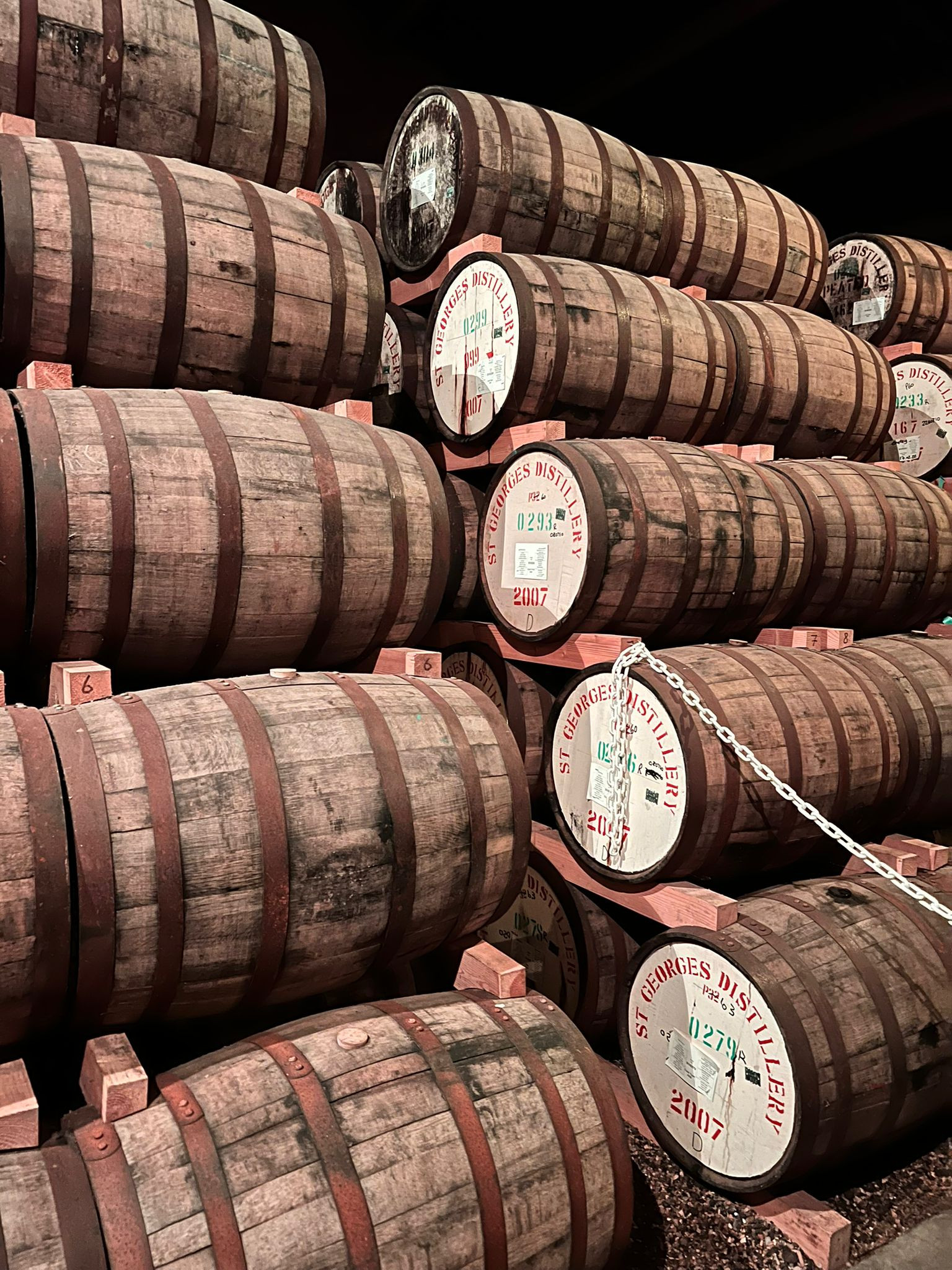- Home
- /
- Grain to glass: a toast to success in ’25

Grain to glass: a toast to success in ’25
Comparing UK & European barley crops
Industry experts gave detailed updates on the state of malting barley crops across the UK and Europe. Discussions highlighted how farmers are adapting to recent winter challenges, disease pressures, and preparing for the upcoming harvest season. Despite unpredictable conditions, resilience and innovative practices are helping farmers maintain crop quality and productivity.
Top-performing varieties
Rob Jackson from Syngenta delivered a market update and showcased their top-performing barley varieties to enhance yield and quality. Key highlights included:
Laureate continues to dominate maritime regions, representing 27% of the spring barley market and excelling in both brewing and malt distilling.
Introductions to Craft, SY Tennison, SY Vessel, SY Signet, and the newly recommended SY Arrow — a promising dual-purpose variety.
These varieties are bred to meet the evolving needs of growers and maltsters, ensuring resilience and market demands are met.
Crop protection solutions
Anna Murray, Syngenta’s Area Manager, provided an insightful agronomy update, sharing key learnings from recent trials and agronomic recommendations. She shone a spotlight on new Miravis, an innovative fungicide designed to offer long-lasting disease control for wheat and barley. Currently in pilot multiplication trials, Miravis is set to become a market leader.
Success stories of Moddus and Axial Pro were also discussed, underscoring Syngenta’s commitment to effective crop protection and environmental responsibility.
Driving down carbon footprint of Malting
Sustainability took centre stage with a compelling session led by Crisp Malt. Rebecca Gee provided a maltster’s perspective on barley performance and market prospects, while Ellie Wood detailed Crisp Malt’s ambitious goal of achieving net-zero emissions by 2045.
Key sustainability initiatives included:
Monitoring emissions across 3 scope levels (on-site, direct & indirect supply chain).
Transitioning to HVO as the alternative to diesel.
Utilising tools like Map of Ag to track emissions and identify actionable steps for farmers.
Trials with low-carbon fertilisers derived from anaerobic digestion waste.
Encouraging regenerative agriculture and improving soil health.
These discussions sparked debate on how sustainability efforts can align with what farmers want to do and what their businesses’ need to be financially viable. While there was willingness of expression to adapt, concerns were raised about how changes can be made to pay rather than impose increased costs. The risk of cheaper imports replacing what we can grow in the UK sparked contention, highlighting the need for a balanced, collaborative approach along the supply chain from grain to glass.
Rob Jackson, Syngenta Seeds Technical Specialist, further emphasised the importance of Sustainable Farming Incentives and companion cropping. Trials at the Elveden Sustainability Site nearby (spanning 17 hectares) are exploring regenerative, Integrated Pest Management, and conventional farming strips to identify best practices.
Grain to glass
The gathering reinforced the importance of collaboration along the supply chain and a shared commitment to goals empowering farmers — a promise at the heart of AF’s mission. By connecting our Members with innovative solutions and reliable suppliers, we support their success in an ever-evolving industry.
The day concluded with a tour of The English Distillery, and their own special blend of tradition with innovation. The historic setting and the delicious taste of a well-deserved dram of English whisky were a fitting reminder that behind every successful product lies a network of dedicated farmers, suppliers, and industry partners. Cheers to that!
Want to talk to your AF Crop Inputs Team? Get in touch with us by email to cropprotection@af.farm or call 01603 881 906.